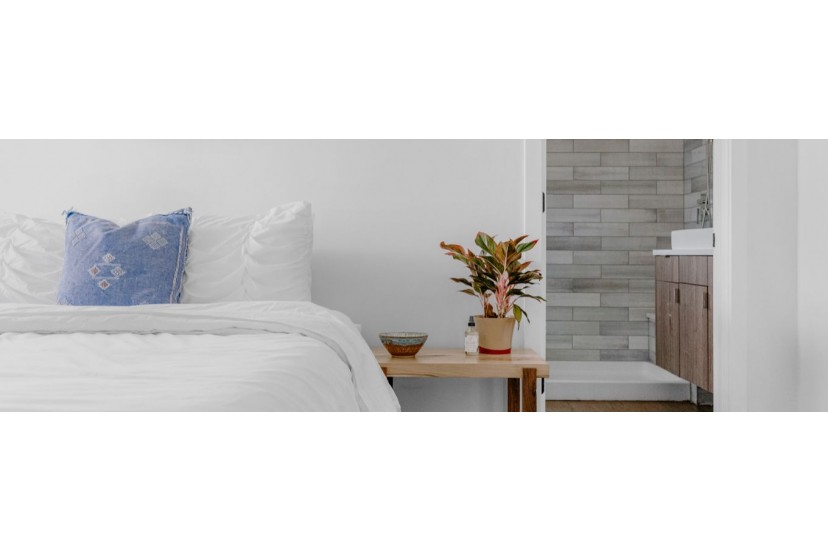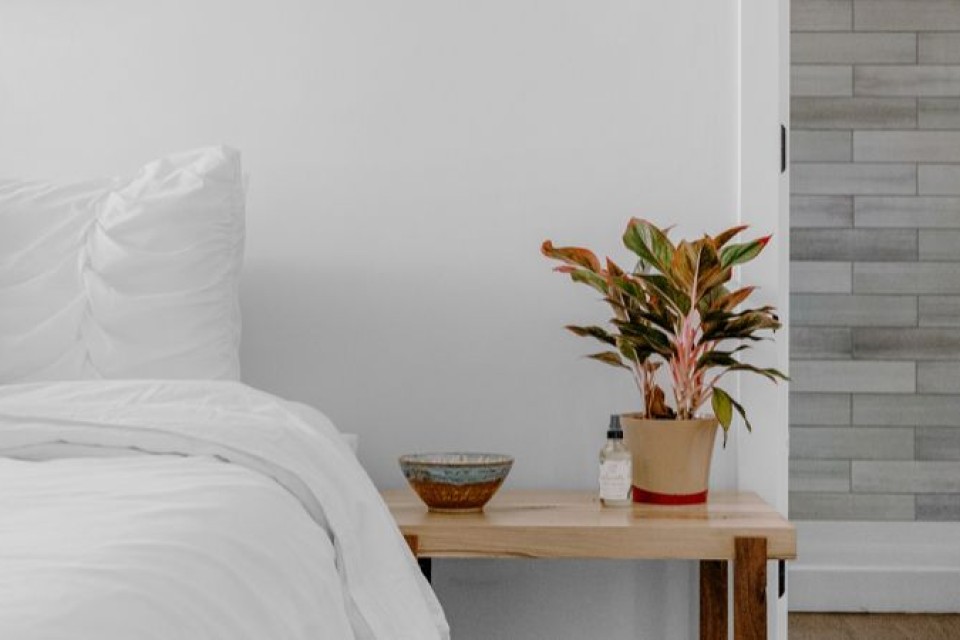There is a prevalent idea that interior design is composed of mere aesthetic options. You create a space that you think is beautiful, and that is your main and, in fact, only concern.
This isn't true, however.
Interior design can provide myriad experiences. A properly decorated space can hype you up for work, relax you after a tough day or actually help you to be more productive. But can it help you sleep better? One would assume that since you sleep with the lights off, this wouldn't be the case.
One would be wrong.
Here are a few tips on how to achieve a space that will help you get the rest you need.
Get a decent sized bed
Less is more, right? There is quite a few design philosophies that emphasize minimalism, and getting rid of everything superfluous. Smaller beds, with daintier mattresses, are growing in popularity for people who seek elegance above all other aesthetic aspects. This would be a mistake, however. You can make the bed the cornerstone of your interior design and build around it, but you should never get a smaller mattress than you need. A lack of space for naturally turning round and moving during sleep is terrible for your sleepy health. Queen-sized should be a minimum.
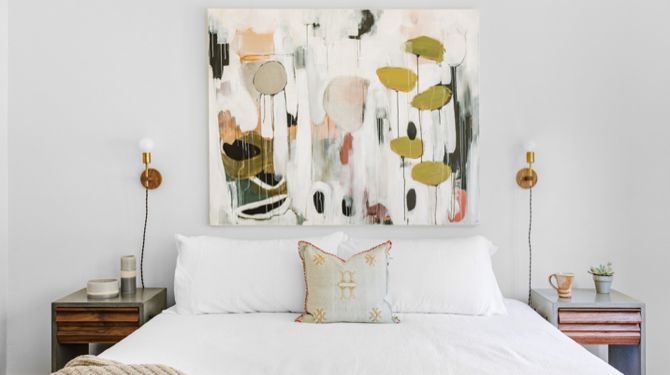
The headboard must make you feel safe
There is still plenty of instinct in us, even though we like to believe we are rational and evolved creatures. A solid headboard, directly against the wall, will ease your mind. Centring the bed in the room may feel very avant-garde, but you will never be able to quiet that part of your brain that will always be scared of some marauder appearing behind you. To that point: your bed must always face the door. This is not where you want to challenge convention. Your sleep will thank you for it.
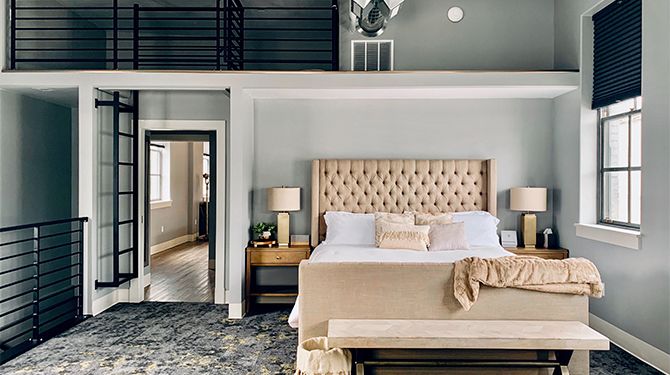
Think colour, think texture
Who hasn't seen those glistening pictures of all-white bedrooms, or even all-black bedrooms? The monochrome just oozing sophistication? Well, though they may look stunning, they are most certainly not ideal for catching Zs. Monochrome environments, and very bright ones at that (such as white) will trick your brain into alertness. You want soothing tones, like blues, greens, warm pinks. And you definitely want patterns and textures. Your comforters and quilts should feel pleasant to the touch, helping your skin lull itself to calmness as you touch them.
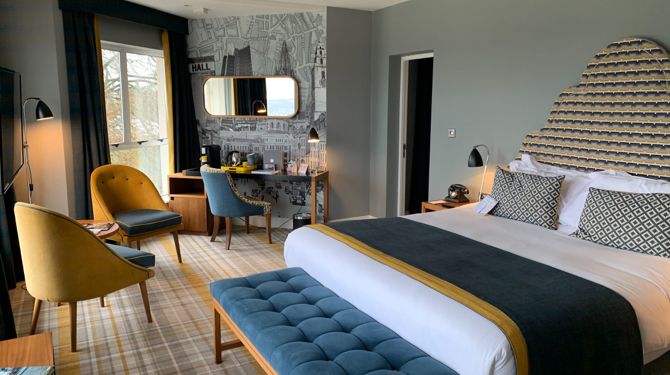
Clutter is the enemy
In the same way that a cluttered mind is a restless mind, a cluttered room will also have the same effect. Clutter is a constant reminder of unfinished tasks. And we don't just mean piles of laundry, or scattered work materials. Even just an excess of decorative elements will activate your brain to verify that they are correctly placed or in tune with each other. Even if you are seeing them for the umpteenth time, your mind will still pick up on them individually.
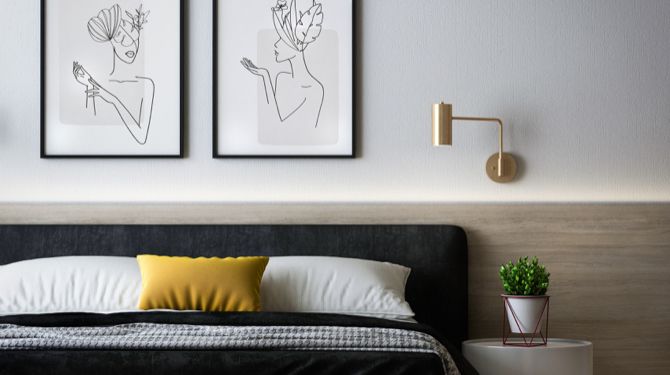
Lighting is, of course, key
And we don't just mean blinders to keep the early morning sunlight out, we mean every form of lighting. We live in a world of enormous light pollution, and it is one of the guiltiest parties in our declining sleep health. Lighting in your bedroom must be right. Don't have any exceedingly bright lights at all. Prefer bedside lamps to overhead lighting. And, if you must use it, try to have dimmers instead of simple switches so you can always keep the brightness to your taste.
Avoid having screens in the bedroom. This goes from tablet computers to the TV. Backlit screen usage before bed is terrible for healthy sleep, and you should avoid it. Reading a book, for example, is a much healthier alternative.
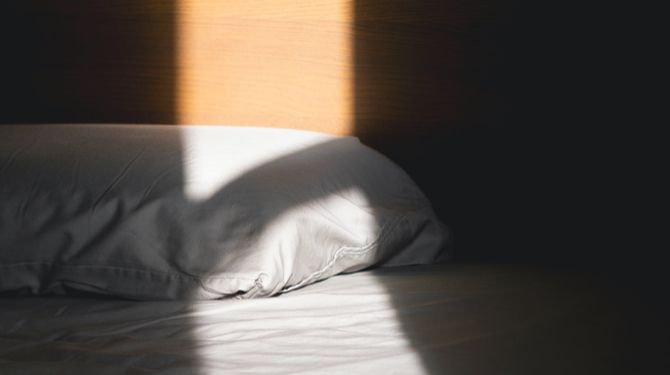
Don't overlook other senses
Are pleasant fragrances a part of interior design? Most certainly. And so are soundtracks. There are many scents that are aggressive to a sense of restfulness and should be avoided, such as chemical cleaners. On the other hand, light lavender linen sprays or carefully placed scented candles can be the very small detail that brings the ambience together. And the same goes for sounds. Having a stereo or just some speakers around the bedroom could provide an excellent alternative to brightly lit TVs. Some people may prefer to listen to ocean sounds, others will go for the soft dulcet tones of Stephen Fry reading an audiobook. This is a very personal choice, but one that should be considered.
So do keep in mind these recommendations, and do create a space that will be conductive to sleep and rest. Remember your bedroom is a space where you should be spending upwards of a third of your time every day. It should be working for you.
And if you are after some gorgeous quality bed linens, duvet covers, bedspreads or throws, please do be sure to check out our online store where you will find exactly what you are looking for.



